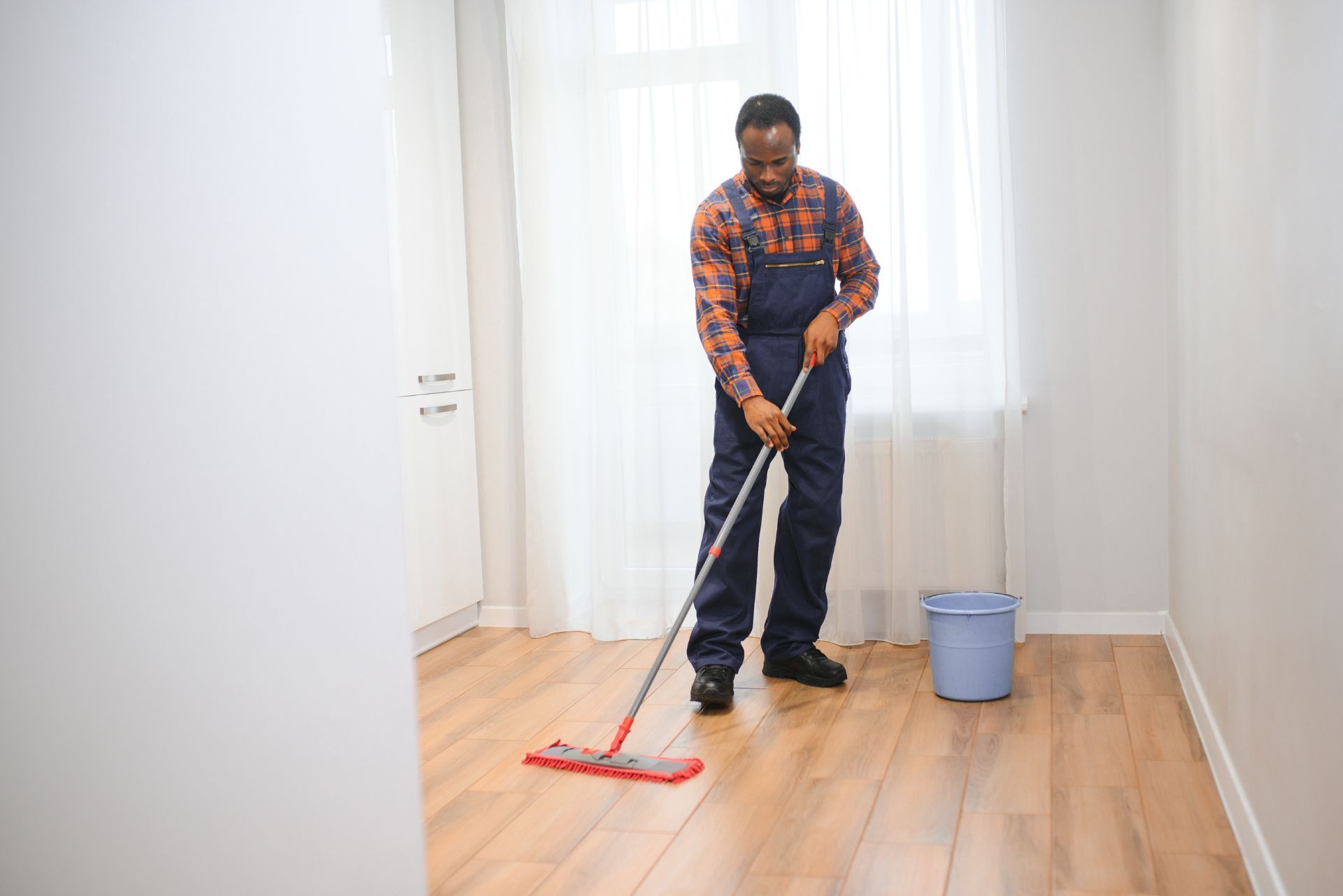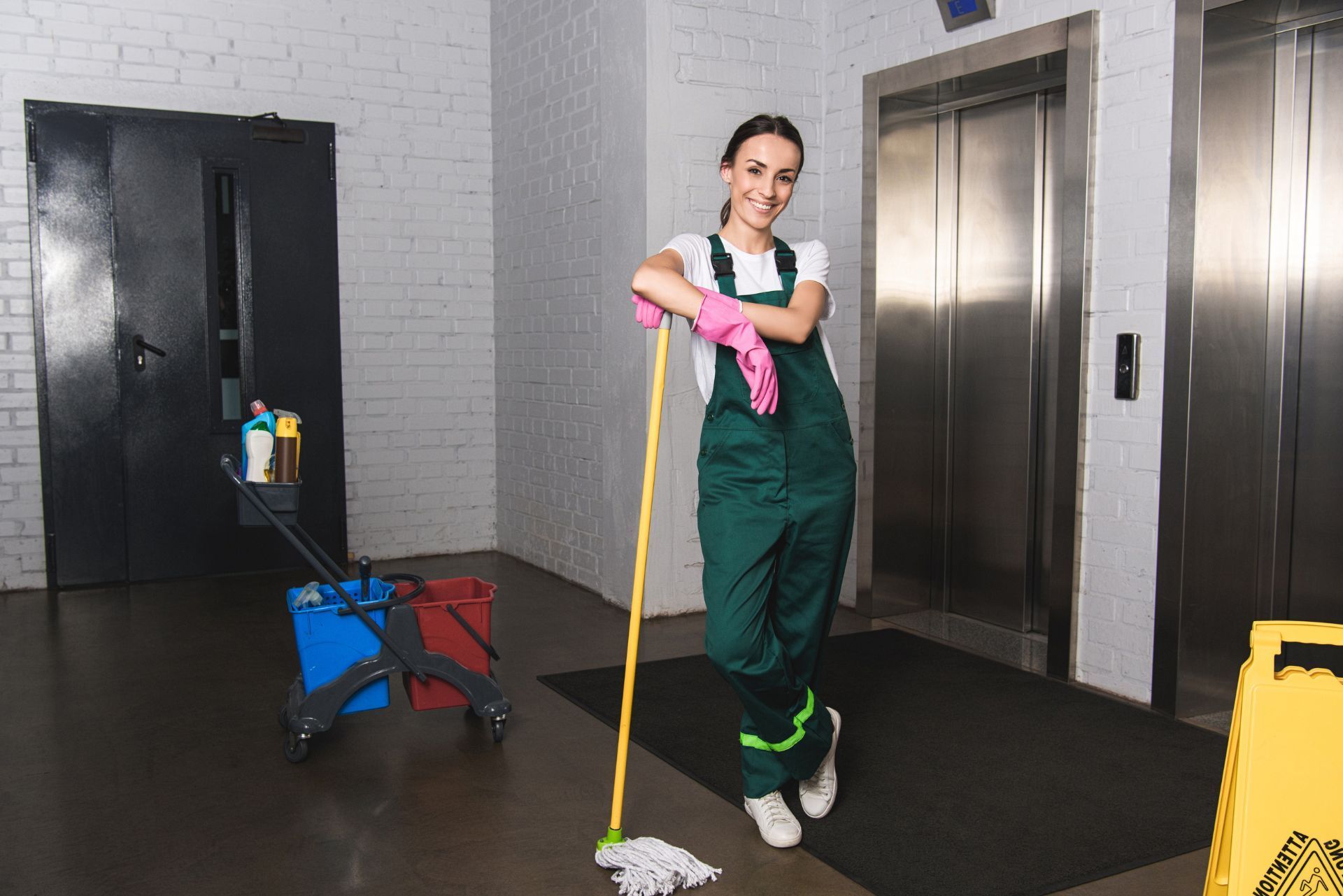Maryland Janitorial Contractor Insurance
See How We're Different:
Call Us: 202-223-1506
Top 3 Recommended Business Policies
Index
Contact Us
Operating a janitorial business in Maryland comes with unique challenges and responsibilities, especially when it comes to insurance coverage. With a booming industry projected to reach $2.3 billion by 2025, and over 71,000 people employed across more than 27,000 establishments, janitorial services are a vital part of the state’s economy. Yet, amid this growth, issues such as worker misclassification and evolving insurance requirements have made it more important than ever for contractors to understand their insurance needs thoroughly.
In this article, we’ll explore the critical aspects of janitorial contractor insurance in Maryland, including recent regulatory changes, the risks janitorial businesses face, and how proper insurance coverage can protect both the company and its employees. For those navigating this sector, staying informed is key to maintaining compliance and safeguarding your business.
To begin, it’s important to note the significant impact of worker misclassification in Maryland, which has led to millions in unreported wages and lost protections for employees. According to the Maryland Department of Labor, over 5,500 workers were misclassified as independent contractors in 2024, resulting in more than $36 million in unreported taxable wages. This issue is particularly relevant for janitorial contractors, who must ensure their workforce is properly classified to avoid legal and financial repercussions.
Understanding the Importance of Proper Insurance for Janitorial Contractors
Janitorial businesses face a variety of risks that make insurance coverage not just a formality, but a necessity. From chemical exposure during cleaning to the hazards of working in client facilities after hours, these risks require specialized insurance policies tailored to the industry.
General liability insurance is fundamental for janitorial contractors, protecting against claims of property damage or bodily injury that may occur during operations. Recognizing this, Maryland has recently increased the minimum general liability insurance requirement for contractors from $50,000 to $500,000 effective June 2024. This change reflects the growing awareness of the risks involved and the need for more robust coverage to protect businesses and their clients. The Allen Thomas Group highlights this important update and its implications for contractors across the state.
In addition to general liability, janitorial contractors often require coverage for workers’ compensation, professional liability, and pollution liability due to the nature of their work. Specialized insurance can also address risks related to chemical handling and the security concerns of working in occupied buildings after hours, as noted by industry experts at ContractorNerd.
Moreover, the evolving landscape of janitorial services, particularly in light of heightened health and safety standards post-pandemic, underscores the necessity for comprehensive insurance. With the increased emphasis on sanitation and cleanliness, janitorial contractors are often tasked with using a variety of disinfectants and cleaning agents that may pose health risks if not handled properly. This not only heightens the potential for accidents but also increases the liability associated with chemical exposure. As such, having insurance that specifically covers these risks can safeguard contractors from costly claims and ensure they can operate with peace of mind.
Furthermore, the nature of janitorial work often involves unpredictable hours and locations, which can lead to unique challenges. For instance, working in high-traffic areas or sensitive environments, such as hospitals or schools, requires contractors to adhere to strict safety protocols. Insurance policies that cover these specific scenarios can provide an added layer of protection, ensuring that janitorial businesses are prepared for any eventuality. As the industry continues to evolve, staying informed about the latest insurance requirements and options is crucial for contractors looking to maintain their competitive edge while safeguarding their operations.

Worker Misclassification: A Hidden Risk for Janitorial Contractors
One of the most pressing issues in Maryland’s janitorial industry is worker misclassification. Misclassifying employees as independent contractors can lead to significant legal and financial penalties. Beyond compliance, this practice also harms workers, who lose access to benefits and protections.
Maryland Comptroller Brooke Lierman has publicly condemned this practice, stating, "Misclassifying workers is not an acceptable business practice, and it is alarming to see the rate at which some employers are engaged in this egregious behavior." This sentiment underscores the importance of proper worker classification in maintaining ethical business standards and avoiding costly audits or lawsuits.
The Economic Policy Institute has found that misclassified workers such as janitors and cleaners lose between $7,206 and $9,946 annually compared to W-2 employees. This wage gap not only affects workers’ livelihoods but also reflects broader economic inequities within the industry. For janitorial contractors, ensuring accurate classification is crucial to protecting their workforce and maintaining a reputable business.
Moreover, the ramifications of misclassification extend beyond immediate financial losses. Workers who are misclassified as independent contractors often find themselves without access to essential benefits such as health insurance, retirement plans, and unemployment insurance. This lack of support can lead to increased stress and insecurity, making it difficult for these workers to plan for their futures or manage unexpected financial burdens. Additionally, the absence of workplace protections means that they are more vulnerable to exploitation, unsafe working conditions, and unfair treatment, which can further perpetuate cycles of poverty and instability.
Furthermore, the issue of worker misclassification is not just a legal concern; it also poses a reputational risk for janitorial contractors. Companies that engage in such practices may find it challenging to attract and retain quality employees, as workers increasingly seek employers who prioritize ethical treatment and compliance with labor laws. In an industry where trust and reliability are paramount, maintaining a transparent and fair classification system can enhance a contractor's reputation, fostering loyalty among employees and clients alike. As public awareness of these issues grows, contractors who fail to address misclassification may find themselves at a competitive disadvantage in an increasingly conscientious marketplace.
Industry Trends Impacting Insurance Needs
The janitorial services industry is evolving rapidly, with sustainability becoming a key focus. Approximately 62% of janitorial businesses in Maryland use eco-friendly cleaning supplies exclusively to meet client expectations for sustainability. This shift towards green cleaning practices can influence the types of insurance coverage needed, particularly in relation to chemical liability and environmental risks. As more clients demand sustainable solutions, janitorial companies may also find themselves needing to invest in training their staff on the proper use of these eco-friendly products, which can further impact their operational costs and insurance requirements.
Moreover, the average profit margin for janitorial businesses ranges from 10-15%, depending on scale and contracts. Maintaining profitability while managing insurance costs requires careful planning and understanding of the coverage that best fits the business model. Insurance providers often offer tailored packages that balance comprehensive protection with affordability, helping contractors safeguard their operations without eroding profit margins. Additionally, as the industry expands, janitorial services are increasingly diversifying their offerings, such as incorporating specialized cleaning for healthcare facilities or post-construction sites. This diversification can lead to new risks and liabilities, necessitating a reevaluation of existing insurance policies to ensure adequate coverage against potential claims or accidents.
Furthermore, the rise of technology in the janitorial sector, including the use of automated cleaning equipment and software for scheduling and inventory management, is transforming traditional practices. While these advancements can lead to increased efficiency and reduced labor costs, they also introduce new complexities in terms of liability and equipment insurance. For instance, if an automated machine malfunctions and causes damage to a client's property, the business must be prepared to address the financial implications. Therefore, staying informed about technological advancements and their associated risks is crucial for janitorial companies looking to protect their assets and maintain a competitive edge in the marketplace.
Choosing the Right Insurance Coverage for Your Janitorial Business
Selecting the appropriate insurance policies is a critical decision for Maryland janitorial contractors. Beyond the mandated general liability coverage, businesses should consider additional policies such as:
- Workers’ Compensation Insurance: Protects employees in case of work-related injuries or illnesses.
- Commercial Auto Insurance: Covers vehicles used for business purposes, which is common in janitorial services.
- Professional Liability Insurance: Offers protection against claims of negligence or inadequate work.
- Pollution Liability Insurance: Addresses potential environmental damage caused by cleaning chemicals.
Working with an experienced insurance broker who understands the janitorial industry can help contractors navigate these options effectively. This ensures that coverage meets legal requirements and addresses the specific risks inherent to janitorial work. Additionally, it is important for business owners to regularly review their insurance policies to adapt to changes in their operations or the industry. For instance, if a janitorial service expands its offerings to include specialized cleaning for sensitive environments like hospitals or laboratories, the need for enhanced coverage may arise. This proactive approach not only safeguards the business but also enhances its credibility with clients who seek assurance that their facilities are in safe hands.
Furthermore, understanding the nuances of each policy can significantly impact the overall risk management strategy of a janitorial business. For example, while general liability insurance covers third-party bodily injury and property damage, it may not cover incidents related to employee injuries, which is where workers’ compensation becomes essential. Contractors should also be aware of the importance of documenting their cleaning processes and maintaining records of employee training, as these practices can help mitigate claims and demonstrate due diligence in maintaining a safe working environment. By investing time in understanding and selecting the right insurance coverage, janitorial contractors can not only protect their business assets but also foster a culture of safety and professionalism within their teams.

Conclusion: Protecting Your Maryland Janitorial Business
Maryland’s janitorial industry is a dynamic and growing sector with unique insurance needs. Recent regulatory changes, such as the increase in minimum general liability insurance requirements, highlight the importance of staying compliant and adequately insured. Furthermore, addressing worker misclassification is essential not only for legal compliance but also for ensuring fair treatment of employees.
By understanding the risks involved and investing in comprehensive insurance coverage, janitorial contractors can protect their businesses, employees, and clients. Staying informed about industry trends and regulatory developments will help Maryland janitorial contractors thrive in a competitive marketplace.
For more detailed insights into these issues, the
Maryland Comptroller’s comments and the
Economic Policy Institute’s study provide valuable perspectives on the challenges facing the industry today.

